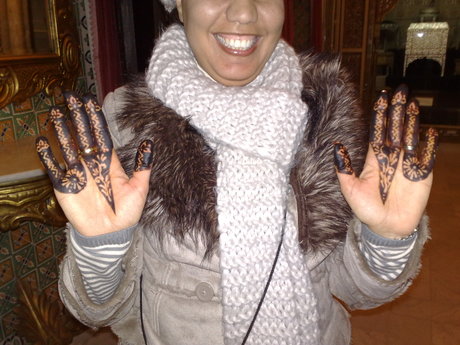The Facebook Revolutions of 2011
Just another day in Egypt.

(Image from the strikingly relevant Garfield minus Garfield).
I've been debating whether to write about the recent events unfolding in North Africa and the Arab world. After all, I spent most of a month in Tunisia last year, where I often used these same Internet cafés that are now being credited with helping organize the initial demonstrations back in December.
I'll repeat that -- the initial demonstrations. After Egypt cut off the Internet last week, it became rapidly clear that these demonstrations draw on much deeper and older societal bonds. It's as if people browsing social sites like Facebook suddenly overcame the barrier of pluralistic ignorance that had kept them quiet in the face of the regime. Suddenly, a critical mass of people realized that there were many others with the same views as their own. Such a phenomenon isn't without precedent. There's been a similar, if less dramatic, effect within the English-speaking Internet regarding atheism, for instance through Reddit.
But that's not all that the Internet has done to help along this revolution. I spent most of a week in the small town of Douz, Tunisia, right at the edge of the Sahara Desert. It's not a bad little town, really, but the changing desert economy means that there's few nomadic herders left, and not many jobs for those who have settled in the city.
There, I found a young man managing an Internet café who had been in a webcam-based relationship with a blond girl from upstate New York for several years. He said that he was sure they would meet, one day. Looking in his eyes, you believe he could do it.
But Ben Ali's regime in Tunisia had held back economic development through a series of bizarre policies, like barring the exchange of Tunisian dinar into foreign currencies. The effect was essentially to imprison Tunisians inside their own country, since earning enough money to travel abroad was so difficult.
Such a policy might have been tolerable twenty years ago, when everybody you would ever know lived wasn't more than a day's bus or louage-van trip. The tattooed faces of old beggar-women, displaying their tribal affiliations, reminded me of how recent that past was for Tunisia. But, now, the Internet has brought the world to them: what could be more frustrating than not being able to meet the world in return?
As a final thought, there's a picture below of a newlywed Tunisian woman on her honeymoon in Tozeur. She had met her husband, an Egyptian, while both were working abroad in Kuwait. At first, their families were skeptical. Egyptians and Tunisians historically don't get along. But, they said, after they met each other, they quickly grew close; now, the families call each other every week. I hope that they're all safe these days, Tunisian and Egyptian alike, and here's hoping that they've really made some history.
